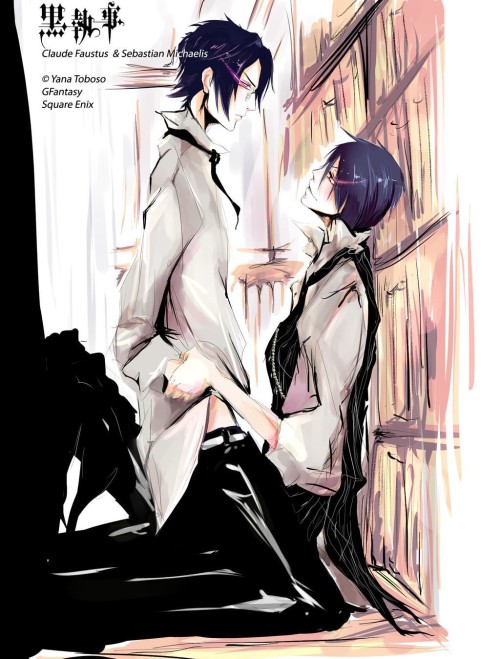
Monthly Girls’ Nozaki-kun surprised me. As long-time readers know, it’s a rare comedy to make me chuckle. Kaguya-sama: Love is War is one of the most recent surprises. Monthly dates back to 2013, but appeared on my Netflix feed, so I gave it a watch. More fodder for JP, after all. I expected the usual shlock: accident breast grabs, misunderstandings, and the usual exhausted rom-com nonsense. Instead, I found a satire on the order of Kaguya-sama. And I’m a sucker for satire.
While Kaguya-sama focused on turning romance into a competition, Monthly hits on all the manga and anime tropes. In this regard, it shares more with Ouran Host Club than Kaguya-sama. However, the flavor of the comedy, how it plays into Kaguya-sama’s themes of intelligence gone awry leaves Monthly between the two. The main male, Nozaki, is a romance-shojo mangaka. Sakura, his high-school classmate, crushes on him and spends the series trying to confess her feelings. Most of the time, her efforts leads to her helping him with his manga in some way. Both characters are intelligent and largely avoid the airhead tendencies of characters in romance manga. In fact, all the cast have smarts. They do exhibit some expected teen-tendencies, such as catastrophizing, but none of these events are off-putting. In many cases, they make fun of such things found in manga.

Nozaki works the impossible hours mangaka are known to work. Everything he does aims at his work. Despite writing romance, he appears a bit dense at times about female feelings and perspectives. But he is self-aware enough to know this, which leads to some funny scenes where he tries to think as a woman in his deadpan, serious way. Sakura’s friendship with him often helps him refine his female characters. Although his manga’s main lead is based on his male friend Mikoshiba’s behavior instead of Sakura. Nozaki’s self-awareness and obsession with his work offers most of the satire, pointing to how ridiculous real life and manga plots can be.
Throughout the series, Nozaki appears unaware of Sakura’s feelings for him, offering her his autograph on a few occasions. However, his little gestures show he isn’t as dense as he appears. He is consumed by his work and observing high-school life to the point of appearing unaware of her. Basically, he is a tease and knows it. But he is a genuinely good person who is sensitive to others. He couldn’t write shojo otherwise! Of course, all of this plays into the satire surrounding his romance manga and high-school relationships.

The story doesn’t glorify the job of a mangaka. In fact, it shows how much grind it is. Of course, this could be seen as a trope to itself. However, Monthly goes into how difficult it can be to come up with a new idea or direction to take a story. Nozaki’s struggle to resolve plots and come up with the right scenes to appeal to the audience made me nod in agreement. Writers of all sorts know that challenge, the hesitation, the struggle Nozaki deals with. Writers often come off as neurotic because of how we try to observe and translate the world onto the page. Nozaki uses his life to try ideas for his story, watching how they play out and memorizing how people looked at the time. His setups are sometimes clever and hilarious. But he is aware of how the situations could hurt people, so he makes some effort to mitigate that, depending on who is involved. Sakura doesn’t resent him for any of it. She and his friends come to understand it is just how he is and how none of it is malicious. Nozaki, for his part, goes out of his way to include Sakura for no other reason but to spend time with her.

Despite how tired high-school rom-coms are, Monthly came off as fresh. The characters felt more college age at times than high-school, helped by the fact there wasn’t a dumb one among them. Well, Mikoshiba comes close, but his personality hides insecurities and offers a foil to Nozaki’s stoicism. All of the characters demonstrate self-awareness and make effort to curb their behavior, even though those efforts fail. Perhaps the most refreshing of all is the lack of fan-service. I suppose you could call some of the outfit gags fan service, but Monthly avoids the photocopied ecchi storyboards rom-com anime use. Monthly may not be completely groundbreaking, but it has fun with the tropes of romance in ways that made me chuckle. The series left me pleased without the usual annoying aftertaste rom-com anime tend to leave.



